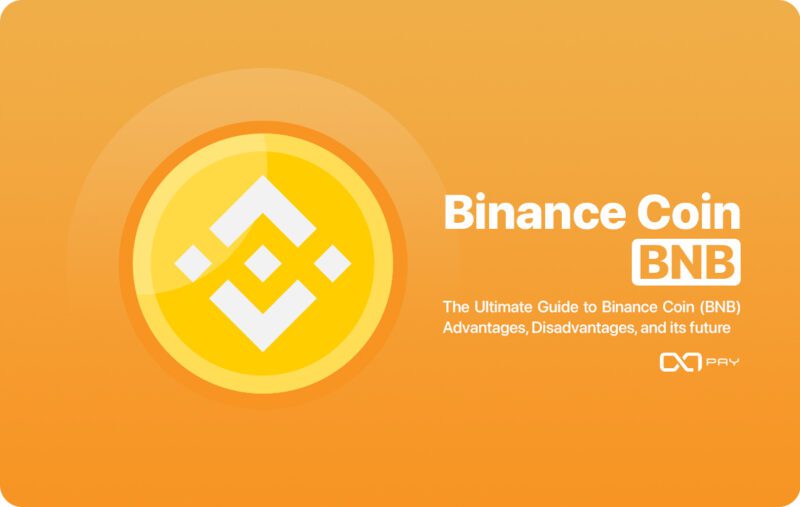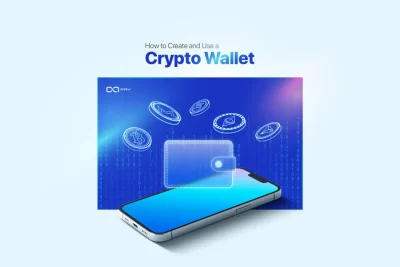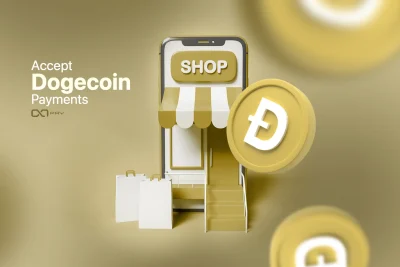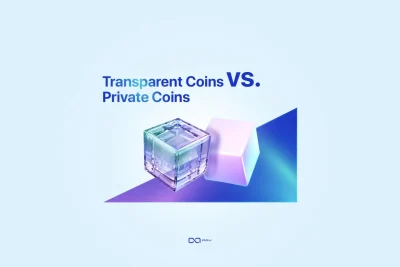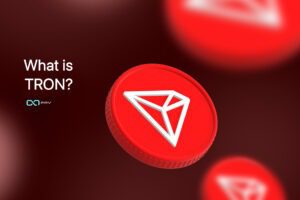Cryptocurrencies have taken the financial world by storm, and Binance Coin (BNB) has emerged as one of the most prominent players in the crypto market. In this comprehensive guide, we will explore the ins and outs of Binance Coin, examining its advantages, disadvantages, and future prospects. Whether you are a seasoned crypto enthusiast or a curious beginner, this article will provide you with valuable insights into the world of BNB.
What is Binance Coin?
Binance Coin (BNB) is Binance exchange’s native cryptocurrency, introduced in July 2017 by Binance, a prominent crypto exchange. Initially an ERC-20 token on Ethereum, BNB transitioned to Binance Chain in April 2019, becoming its native asset.
As the backbone of the Binance ecosystem, BNB serves multiple essential functions, making it a versatile and sought-after digital asset in the crypto market. Here are some key aspects of Binance Coin:
Trading Fee Payments: One of the primary use cases for BNB is to facilitate trading fee payments on the Binance exchange. Traders can use BNB to pay for transaction fees when buying, selling, or trading various cryptocurrencies on the platform. By doing so, users can avail of significant discounts, making BNB an attractive option for frequent traders on Binance.
Token Sale Participation: Binance Launchpad, an innovation within Binance, enables early investment in new blockchain projects. BNB’s vital role involves holding and using it for token sales of chosen projects on Launchpad.
Binance Smart Chain (BSC)
Binance Smart Chain (BSC), introduced by Binance, parallels Binance Chain. Launched in September 2020, BSC expands Binance’s ecosystem with smart contracts, DApps, and Ethereum Virtual Machine (EVM) compatibility..
Key Features of Binance Smart Chain
It offers several key features, including EVM compatibility, a dual-chain architecture allowing seamless asset transfer between chains, low transaction fees, high throughput for fast and scalable transactions, and support for DeFi projects and DApps. BSC also enables cross-chain compatibility, expanding its reach across different blockchain networks. Binance Coin (BNB) plays a vital role in the BSC ecosystem as the primary gas fee for transactions and interactions. While BSC has While facing criticism for its relatively centralized consensus mechanism, Binance Smart Chain has gained popularity for cost-efficiency and DeFi support. Its future hinges on addressing scalability, security, and user-friendliness to sustain its growth.
Tokenomics and Token Burns
BNB operates on a deflationary model with a limited total supply of 200 million tokens. Binance conducts periodic token burns, whereby a portion of BNB from transaction fees is permanently removed from circulation. This burning process helps reduce the token’s overall supply, thereby potentially increasing its scarcity and value over time.
At first, Binance pledged to burn 20% of quarterly profits in BNB until 100 million tokens were destroyed, reducing the total supply to 100 million. With rising profits, token burns became more frequent, intensifying supply limits and enhancing BNB’s deflationary aspect.
The token burn events are highly anticipated by the community and can impact BNB’s short-term price movements. The burning mechanism serves as a way to reward BNB holders by increasing token scarcity and promoting long-term retention.
Community Governance
Binance Coin includes a community governance system for BNB holders to engage in decision-making and propose Binance ecosystem changes. Through on-chain voting, BNB holders can cast their votes on various proposals, upgrades, and network improvements.
Community governance introduces decentralization to the Binance ecosystem, empowering the community in shaping its future. Yet, Binance’s leading role with BNB and its platforms can still impact the level of decentralization.
Advantages of Binance Coin (BNB)
- Lower Transaction Fees: One of the significant advantages of using Binance Coin is the reduced transaction fees on the Binance exchange. Users can enjoy further discounts by holding BNB in their wallets, making it an attractive option for active traders.
- Utility Token: BNB serves as a utility token on the Binance platform, offering various use cases within the ecosystem. Users can pay for trading fees, participate in token sales, and even book hotels using BNB.
- Faster Transactions: Binance Coin transactions are processed swiftly, thanks to the high throughput capability of the Binance blockchain. This makes it ideal for traders who require quick and efficient transfers.
- Binance Launchpad: Binance Launchpad enables new blockchain projects to fundraise through token sales, granting exclusive early investment opportunities to BNB holders.
- Decentralized Exchange (DEX) Integration: BNB serves as gas on Binance Smart Chain (BSC), facilitating smooth integration with DApps and DeFi platforms.
- Strong Community Support: Binance Coin has garnered a massive and active community, which plays a vital role in driving its adoption and development.
- Token Burns: Binance conducts periodic token burns, where a portion of BNB is taken out of circulation, reducing its total supply. This deflationary mechanism helps maintain its value over time.
Disadvantages of Binance Coin (BNB)
- Centralization Concerns: Binance Coin’s association with the centralized Binance exchange raises concerns about decentralization. Centralized control may pose risks if the platform faces regulatory challenges or security breaches.
- Market Dependency: BNB’s value heavily relies on the performance and reputation of the Binance exchange. Any adverse events related to Binance could impact the coin’s price.
- Limited Use Outside Binance: While BNB is widely used within the Binance ecosystem, its utility outside the platform is relatively limited compared to other cryptocurrencies.
- Volatility: As with many cryptocurrencies, BNB’s value is subject to high levels of volatility, which can lead to significant price fluctuations.
- Competition: BNB faces competition from other exchange-based tokens and utility tokens in the broader cryptocurrency market.
- Regulatory Risks: The evolving regulatory landscape for cryptocurrencies may pose challenges for Binance Coin’s future growth and adoption.
Accepting BNB Payments with OxaPay
BNB’s rising popularity and integration into businesses will likely bolster its role as a practical payment cryptocurrency. As Binance expands its ecosystem and services, BNB’s adoption could grow, offering users and merchants seamless payment solutions. This solidifies its position in the digital economy and creates new opportunities.
Utilizing BNB’s global acceptance, fast processing, and cost-effective fees, businesses can broaden their customer base while ensuring security and privacy. Integrating BNB payments on platforms like OxaPay simplifies acceptance for merchants, expanding its real-world transaction use..
OxaPay offers a user-friendly solution for businesses to accept BNB payments. Merchants can easily create an account, verify their email, and add a preferred payment method. With seamless integration with Binance Coin, merchants can generate payment links or buttons for smooth BNB transactions. By integrating OxaPay into their websites or online stores, businesses can provide a hassle-free payment experience for customers using BNB.
OxaPay offers several benefits for businesses accepting BNB payments. With a low transaction fee , it provides a cost-effective solution, reducing financial burdens for merchants. No KYC documentation is required, simplifying onboarding and enabling quick acceptance of BNB payments. OxaPay’s robust security ensures swift and secure BNB transactions, instilling confidence in merchants and customers. By adopting OxaPay’s solution, businesses can tap into the popularity of Binance Coin, expand their customer base, and offer a practical payment option to their clientele.
Conclusion
In conclusion, Binance Coin (BNB) has emerged as a prominent player in the crypto market, offering advantages like lower transaction fees, utility within the Binance ecosystem, and fast transactions. Despite facing challenges like centralization concerns and regulatory risks, BNB’s future looks promising. Its continuous integration into various platforms, including OxaPay, will likely strengthen its position in the digital economy. As with any investment, staying informed is crucial for users and stakeholders to make the most of Binance Coin’s potential in the evolving cryptocurrency landscape.
FAQ
How does Binance Smart Chain (BSC) enhance the capabilities of the Binance ecosystem?
Binance Smart Chain (BSC) is a parallel blockchain to Binance Chain, designed to expand the capabilities of the Binance ecosystem. Launched in September 2020, BSC offers smart contract functionality, decentralized applications (DApps), and compatibility with the Ethereum Virtual Machine (EVM). BSC's features include EVM compatibility, low transaction fees, high throughput, cross-chain compatibility, and support for DeFi projects and DApps. BNB plays a crucial role on BSC by serving as the primary gas fee for transactions and interactions, enabling seamless integration with decentralized platforms while enhancing the overall utility and versatility of the Binance ecosystem.
What advantages does Binance Coin (BNB) offer?
BNB provides several advantages, making it a versatile and sought-after digital asset:
•Lower Transaction Fees: BNB users can enjoy reduced transaction fees on the Binance exchange, with further discounts for holding BNB in their wallets.
•Utility Token: BNB serves as a utility token for various purposes within the Binance ecosystem, including trading fee payments and participation in token sales.
•Faster Transactions: BNB transactions are processed quickly due to the high throughput capability of the Binance blockchain.
•Binance Launchpad Access: BNB holders have exclusive access to token sales on Binance Launchpad, offering early investment opportunities.
•Decentralized Exchange Integration: BNB's role as gas on BSC allows seamless integration with DApps and DeFi platforms.
•Community Support: BNB has a strong and active community, contributing to its adoption and development.
•Deflationary Mechanism: Periodic token burns reduce BNB's supply, potentially enhancing its value over time.
What are the concerns and disadvantages associated with Binance Coin (BNB)?
While BNB offers various advantages, there are also concerns and disadvantages to consider:
•Centralization Concerns: BNB's connection to the centralized Binance exchange raises concerns about decentralization, posing risks in regulatory and security scenarios.
•Market Dependency: BNB's value relies heavily on Binance's performance, which means adverse events related to the exchange could impact the coin's price.
•Limited Use Outside Binance: While widely used within Binance, BNB's utility outside the platform is relatively limited compared to other cryptocurrencies.
•Volatility: Like many cryptocurrencies, BNB's value is subject to high volatility, resulting in significant price fluctuations.
•Competition: BNB faces competition from other exchange-based and utility tokens in the broader crypto market.
•Regulatory Risks: Evolving regulations could affect BNB's future growth and adoption.
How does BNB's deflationary model work, and how do token burns impact its value and scarcity?
BNB operates on a deflationary model with a capped total supply of 200 million tokens. Binance conducts periodic token burns, removing a portion of BNB from circulation. Originally, 20% of quarterly profits were burned until 100 million tokens were reduced to 100 million. Increased profits led to more frequent token burns, further reducing supply. Token burns enhance BNB's scarcity, potentially increasing its value over time. These events influence short-term price movements and reward long-term holders, contributing to the overall attractiveness of BNB.
How can businesses accept BNB payments with OxaPay?
Businesses can seamlessly accept BNB payments with OxaPay, a platform designed to facilitate cryptocurrency transactions. By integrating OxaPay into their websites or online stores, merchants can offer customers a hassle-free payment experience using BNB. To accept BNB payments:
1.Create an Account: Merchants sign up on the OxaPay platform, providing necessary information.
2.Verify Email: After registration, merchants verify their email for security purposes.
3.Add Payment Method: Merchants link their preferred payment method to their OxaPay account.
4.Generate Payment Links or Buttons: OxaPay enables merchants to create payment links or buttons for BNB transactions.
5.Integration: Merchants integrate the generated payment links or buttons into their websites or online stores.
6.Accept BNB Payments: Customers can use BNB to make payments, benefiting from low transaction fees, security, and privacy features provided by OxaPay.
.
